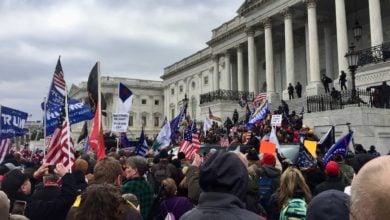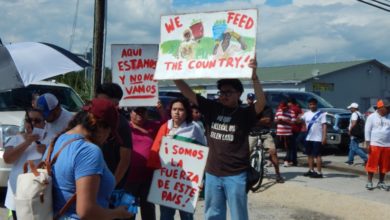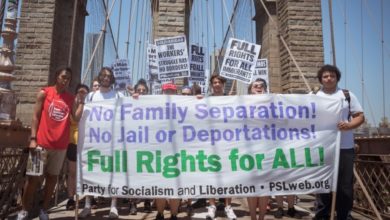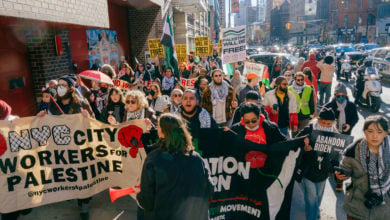On May 3, the U.S.
Supreme Court issued a ruling that protected officials who denied medical treatment to an undocumented immigrant while in federal custody. The ruling sets a broad legal precedent protecting those who provide inadequate and inhumane treatment to people held by
the government.
|
Supreme Court |
Francisco Castaneda came from his native El Salvador to the
United States to work. After a 2005 conviction, he was detained by the U.S.
Immigration and Customs Enforcement, which has jurisdiction over non-U.S.
citizens.
Immediately after his incarceration, Castaneda began
complaining of a bleeding lesion on his penis. Despite the advice of medical
staff at the facility, who believed the growth could be cancerous, the U.S.
Public Health Service refused to schedule a biopsy, labeling the procedure
“elective.” Instead, they offered him ibuprofen, antibiotics and additional
underwear.
After almost a year of Castaneda pleading for treatment, the
U.S. Department of Immigration Health Services scheduled a biopsy only after
the growth spread, cancer became obvious and a prisoners’ rights group agitated
for action.
The results of the biopsy confirmed cancer. But before the
results came back, Castaneda was released from ICE custody so the government
would not have to pay for his treatment. As a result of the neglect he suffered
at the ICE facility the cancer had spread elsewhere in his body. He had only a
short time to live.
Represented by Public Justice and supported by the American
Civil Liberties Union and others, Castaneda sought to sue the health officials
responsible for neglecting his health and violating the constitutional
prohibition on “cruel and unusual punishment,” rather than simply suing the
federal government itself. By law, the government’s liability costs would not
be nearly enough to cover the medical costs incurred by Castaneda and his
family in the desperate attempt to save his life, let alone compensate for his suffering
and his family’s loss.
After his 2008 death, Castaneda’s family continued the
fight, with both a federal judge and a U.S. Appeals Court ruling that the suit
against the health officials could go forward. The government itself admitted
culpability in Castaneda’s death, but the Supreme Court disagreed with the
lower courts, citing a 1970 law prohibiting lawsuits against health officials.
Recently appointed Justice Sonia Sotomayor delivered the court’s opinion.
Gabriel Eber, a staff attorney with the ACLU’s National
Prison Project, said, “The Supreme Court has unfortunately closed the door on
an important avenue of accountability for the gross mistreatment that
immigration detainees across the country have suffered.”
Working-class prisoners in the United States, including
people yet to be tried in court, usually suffer from degrading and inhumane
conditions. People caught in the web of immigration detention, especially Latin
Americans, suffer particular injustices. Sometimes without charges, they are separated
from their families and face indefinite incarcerations. The specter of
deportation is constantly held over their heads, and periodic raids are used to
frighten workers into accepting the worst of working and living conditions.
Mistreatment by government personnel is common; the Castaneda case is a prime
example of this, but also points to the capitalist state’s role in terrorizing
immigrant workers—with no mechanism for accountability by abusive personnel,
prisoners can freely be treated cruelly.
The PSL stands with all immigrants in demanding immediate
and full legal rights!







